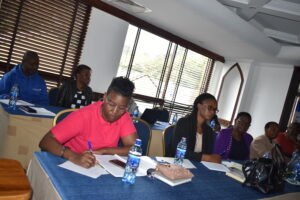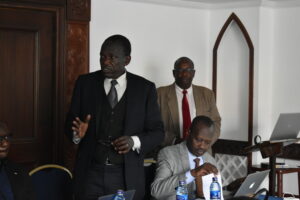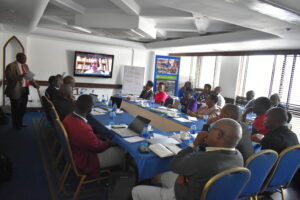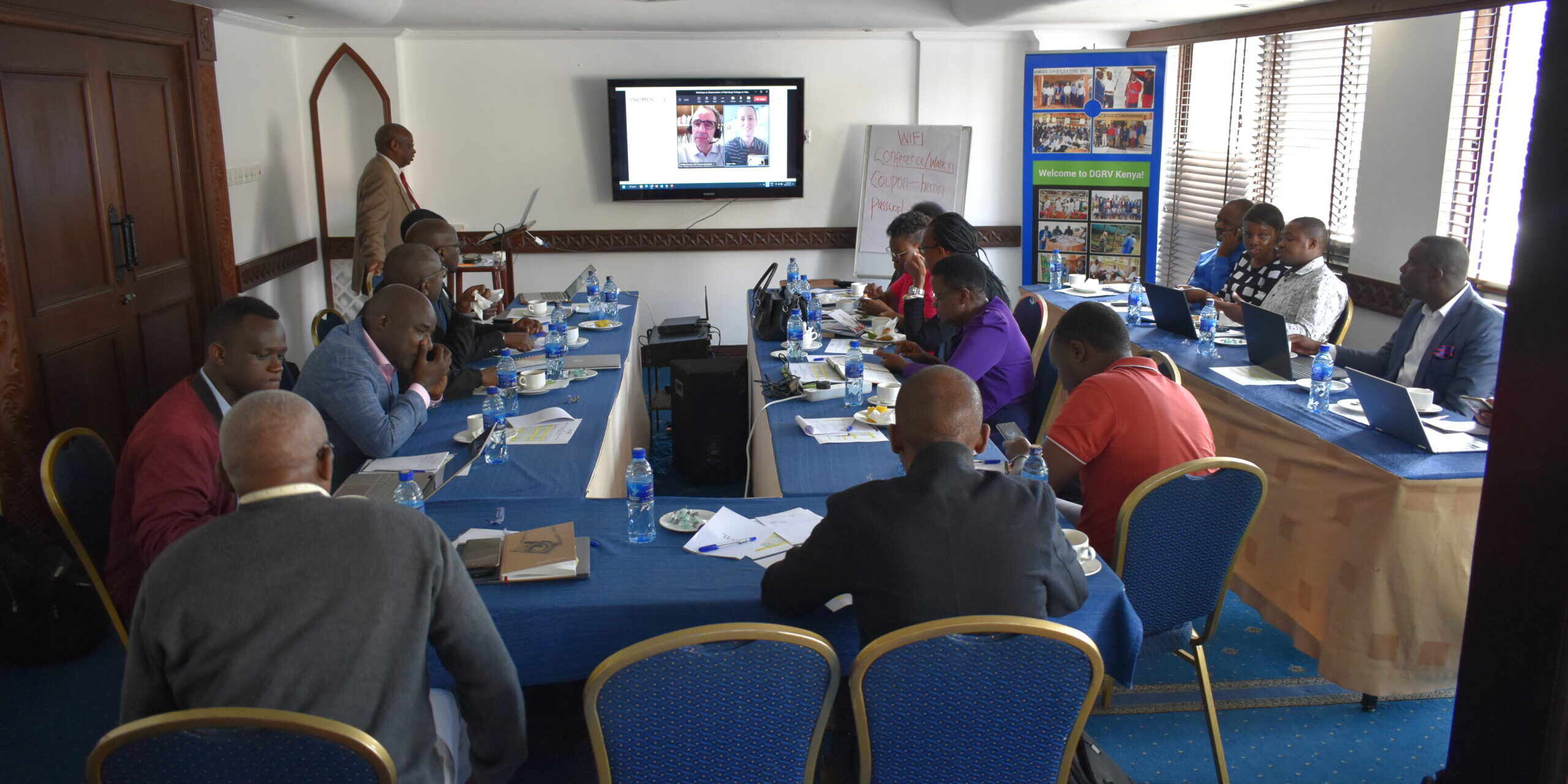The Ministry of Cooperatives and Micro, Small and Medium Enterprises (MSMEs) Development in Kenya and German Federal Ministry for Economic Cooperation and Development are implementing a project in Kenya namely: Promoting Co-operative Structures in East Africa as a Contribution to Strengthening Rural Regions. In Kenya, the specific project interventions are implemented by German Kenyan Cooperative Development (GKCD). One of GKCD’s project components is to advise the Kenyan Co-operative sector on business innovations in form of new Co-operative business models. For this purpose, Mr. Rodrigo Gouveia, a U.S. health co-operative expert, was engaged by GKCD to undertake a study between 26th-30th September 2022 on the feasibility of health co-operatives in Kenya. Consequently, we disseminated the findings of the field study titled “Assessment of Health Services Provision through Co-operative Business Models in Kenya” in a half day workshop on Friday, 12th May 2023 at The Heron Hotel.
The following stakeholders were represented during the workshop: Solidaridad; Co-operative Alliance of Kenya; Fairtrade Africa; ICA Africa; Kenya Society of Professional Co-operators; Global Communities State Department for Cooperatives; We Effect; National Health Insurance Fund (NHIF); Directorate of Cooperative Development-Nairobi County; World Council of Credit Unions ( WOCCU); USAID; Ministry of Health; NCBA CLUSA; The Cooperative University of Kenya (CUK), KUSCCO; National Nurses Association of Kenya (NNAK); Kenya National Union of Nurses (KNUN); and Kenya Clinical Offers Association. DGRV Uganda attended the workshop virtually.
 Mr. Rodrigo of Promocoop gave an assessment of the current situation in the health sector and by extension the health cooperatives. He stated that the cooperative movement is a huge movement and cooperatives are enterprises that is controlled by its members and not controlled by investors. He stated that cooperatives sustain themselves through profits and hence they are supposed to be well governed. He stated that health cooperatives model is not unique to the other models as it has a lot of similarities to the other models. He stated that the health coops to thrive, the political and economic environment needs to be stable so that they can be able to offer their services to their members. He stated that the role of NHIF is critical to the health coops as they are geared to meet the same objectives.
Mr. Rodrigo of Promocoop gave an assessment of the current situation in the health sector and by extension the health cooperatives. He stated that the cooperative movement is a huge movement and cooperatives are enterprises that is controlled by its members and not controlled by investors. He stated that cooperatives sustain themselves through profits and hence they are supposed to be well governed. He stated that health cooperatives model is not unique to the other models as it has a lot of similarities to the other models. He stated that the health coops to thrive, the political and economic environment needs to be stable so that they can be able to offer their services to their members. He stated that the role of NHIF is critical to the health coops as they are geared to meet the same objectives.
He elaborated on the 4-tier structure of the cooperative movement as well as how the movement is structured between the national government and county  governments and how this affected this business model. The health cooperatives must be legally formed and constituted for it to operate. He stated that financing the health coops is quite critical and limited. The coop needs to raise funds from grants, this can be done through BP and SP to secure funding. He went further and elaborated on the different models of ownership primarily for health sector.
governments and how this affected this business model. The health cooperatives must be legally formed and constituted for it to operate. He stated that financing the health coops is quite critical and limited. The coop needs to raise funds from grants, this can be done through BP and SP to secure funding. He went further and elaborated on the different models of ownership primarily for health sector.
He gave examples of 2 cooperatives in Brazil, Wales, Belgium and Peru owned mainly by the health providers and that provide health care, medical insurance, and pharmacy services to its members. In the Kenyan case he stated that the possible options entailed expanding the mandate of the existing cooperatives to the health sector which is more favorable as this does not entail starting the registration of a new cooperative. The other option is establishing a cooperative by health workers purely to offer healthcare services to its members.

In conclusion, Rodrigo stated that the health sector is ready for more robust health cooperatives through a pilot program for cooperatives run by healthcare professionals. He stated there is need for more room to foster innovative cooperative models which require financing for start-up and thereafter enhancing financial sustainability.







